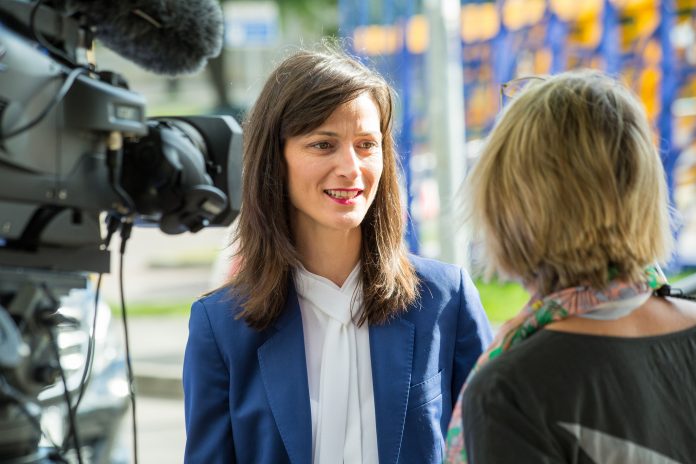The European Union’s High-Level Expert Group on Fake News and Disinformation presented its report to Commissioner for the Digital Economy and Society Mariya Gabriel on March 12.
The independent experts advocate for a Code of Principles for online platforms and social networks.
“Thanks to the High-Level Expert Group and to Professor Madeleine de Cock Buning for the great work in steering the group to meet the tight deadlines,” said Gabriel. “With all the opinions gathered and the extensive collective expertise, we now have at our disposal a wide array of material that will help us put forward a number of tangible options to better address the risks posed by disinformation spread online.”
The report complements the first insights from a public consultation and Eurobarometer survey also published on March 12. These contributions will feed into the preparation of a Communication on tackling disinformation online, that the Commission will publish in spring.
“I am very pleased with our results, especially the commitment of all stakeholders, including online platforms, on the steps we advise the Commission to take. It is a great leap forward on the issue of the spread of disinformation: we have created a robust starting point for a Code of Practices, supported by a multi-stakeholder Coalition,” said Madeleine de Cock Buning, who chairs the High-Level Expert Group.
The report focuses on problems associated with disinformation online rather than fake news. The experts deliberately avoided the term ‘fake news’, saying it is inadequate to capture the complex problems of disinformation that also involves content which blends fabricated information with facts.
As such, the report defines disinformation as false, inaccurate, or misleading information designed, presented and promoted for profit or to intentionally cause public harm. This can threaten democratic processes, values and can specifically target a variety of sectors, such as health, science, education and finance. The report underlines the need to involve all relevant parties in any possible action, recommending first and foremost a self-regulatory approach.
The group recommends the promotion of media literacy to counter disinformation. It also calls for the development of tools for users and journalists to tackle disinformation.
Meanwhile, the latest Eurobarometer survey shows that 83% of the 26,000 people surveyed believe there is a lot of fake news and that this phenomenon represents a danger to democracy.

